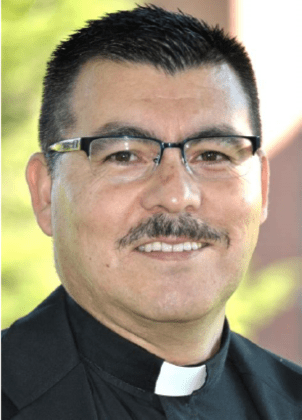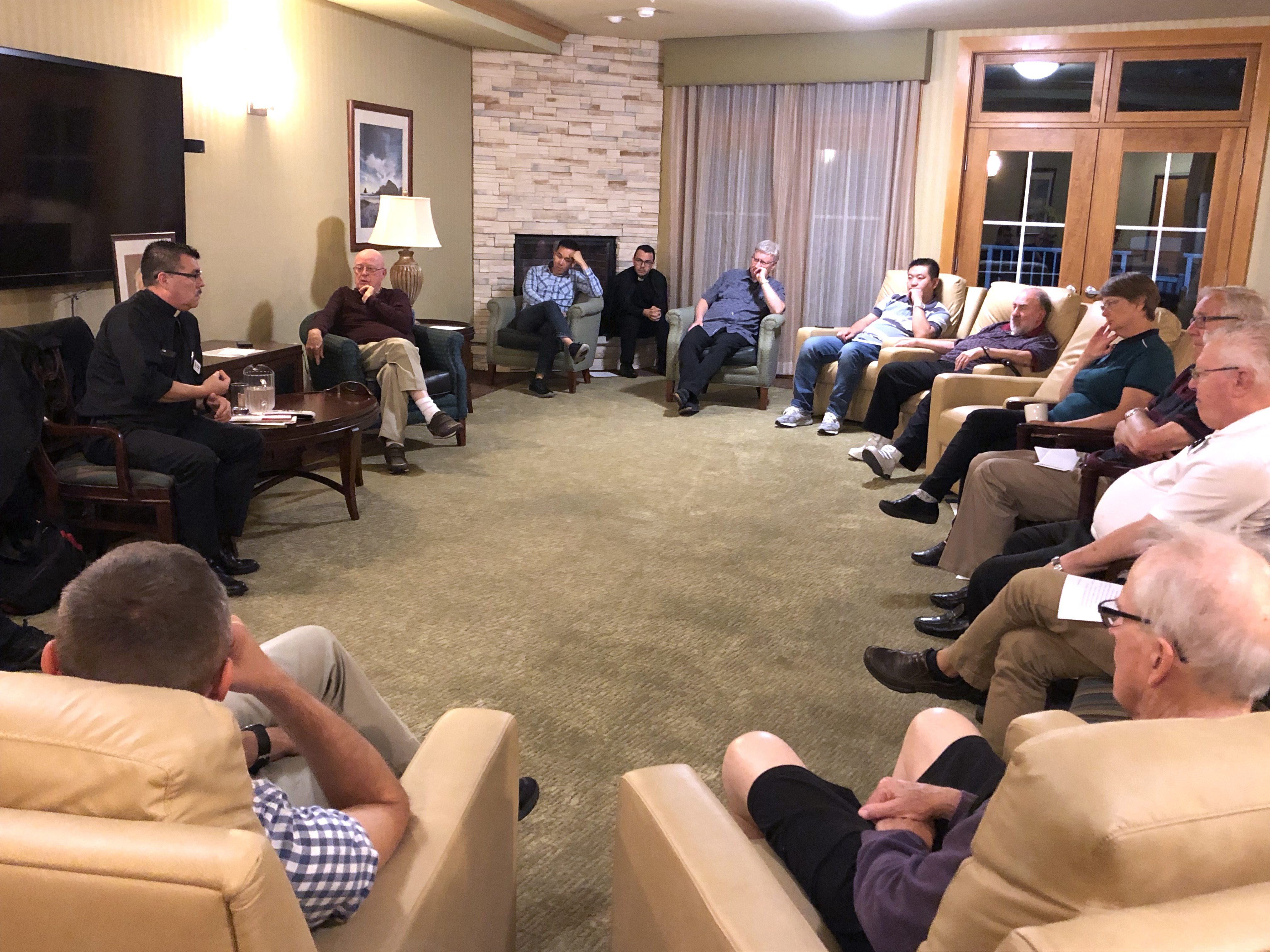“And so for you who are Dehonians, wherever you are, how are you prophetic? Are you faithful to the charism of your congregation? Are you being faithful to reparation? As you know, when reparation happens, reconciliation is possible.”
-Fr. Jose Gonzales

During an informal presentation September 11 at Sacred Heart at Monastery Lake, Fr. Jose Gonzales, a Milwaukee diocesan priest, shared his experience of ministering to undocumented migrants at St. Adalbert parish in Milwaukee. He is pastor of the parish, one of the largest Latino parishes in the area, as well as a member of the Hispanic Ministries staff at Sacred Heart Seminary and School of Theology.
Fr. Jose began by sharing his own story of conversion. He was born in Chile and his father was a union organizer. When Jose was seven years old, General Augusto Pinochet overthrew the democratically elected president, Salvador Allende. Fr. Jose’s father “disappeared” for two years, eventually released from a prison camp after being tortured. From that moment on, Fr. Jose and his family lived in a constant state of fear.
Eventually, Fr. Jose came to the United States and worked in Los Angeles. There, he said that life became “too comfortable.” He “forgot where he came from.” At a friend’s ordination to the priesthood in South Central Los Angeles, he heard God’s voice asking him “Where have you been?” Eventually, he too was ordained and became a priest for the Archdiocese of Milwaukee.
During the last presidential campaign, it was difficult for the people he served to hear the negative rhetoric about Latinos. Now, he said, the level of fear is traumatic. “Children wonder if their parents will be there when they get home from school,” he said. “Dreamers [DACA recipients] fear deportation to countries that they have never known; parents are afraid to go out, call the police or access basic human services. People feel penalized and criminalized.”
This all became real for Fr. Jose on a recent trip to El Paso. As he was going through airport security he said that the officers were “so nice to me, they treated me with great respect.” But then noticed that “behind me was an undocumented pregnant woman holding a child, and with two little boys. She was wearing an ankle bracelet. The same security officer suddenly became a ‘monster’ with her. The woman was terrorized. The children started crying and you could see the level of tension escalating in their eyes as they did not understand what was happening to their mom. I just went over to a chair and sat down. I did not know what to do, I just sat there and cried. Then I got up, went to the store and bought teddy bears for the kids. It was my feeble way of trying to be present to what was happening to this vulnerable woman with no documentation.”
Fr. Jose looked at the room and asked, “What has happened to the soul and conscience of our country?”
He encouraged people to speak out. “We must accept Pope Francis’ call to encounter the stranger and be prophetic in our response,” he said. “And so for you who are Dehonians, wherever you are, how are you prophetic? Are you faithful to the charism of your congregation? Are you being faithful to reparation? As you know, when reparation happens, reconciliation is possible.
“As Dehonians, you must remind us that there is a heart. You are called to be bridge-builders among cultures calling forth the beauty of humanity and yet it is so hard to do. We seem to be more and more polarized, even with our table conversations, they have become so politicalized. Often, we just want to get away from the table and yet the invitation is to stay at the table and stay in the conversation.
“In these moments, I am discovering more and more the importance of drawing strength from being present to the Blessed Sacrament.”

